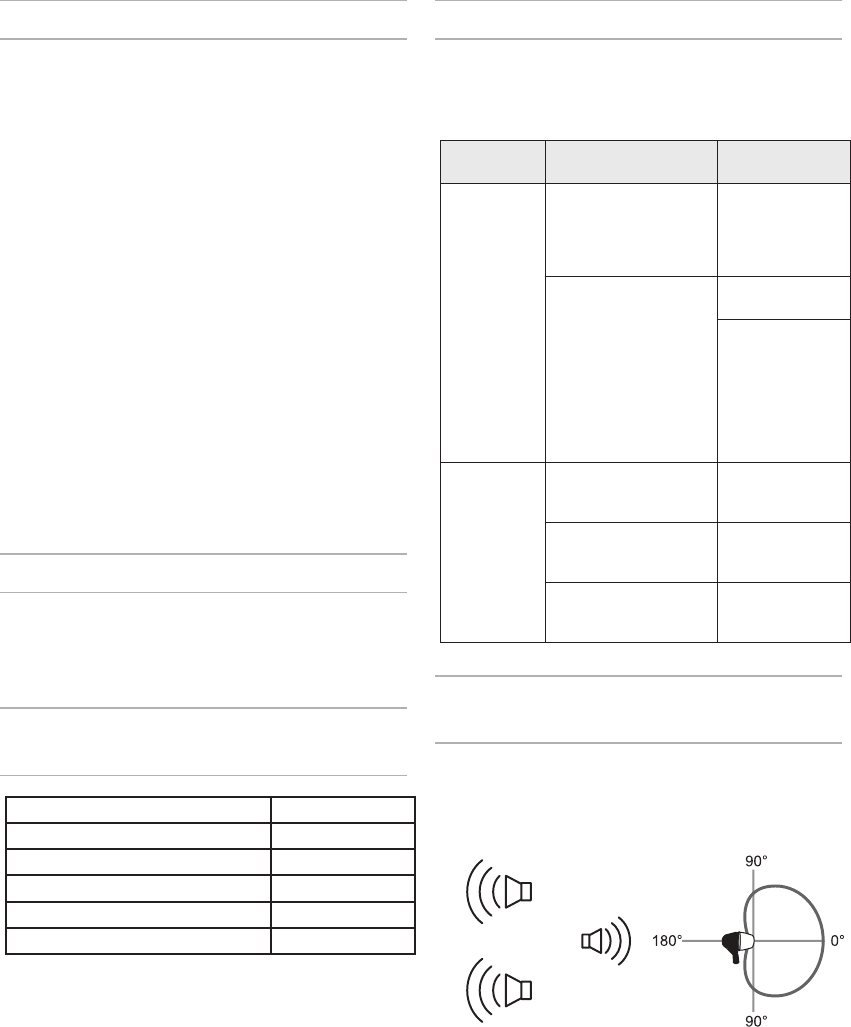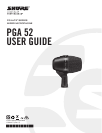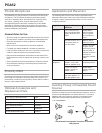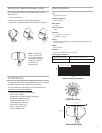
2
PGA52
Applications and Placement
The following table lists the most common applications and
placement techniques. Keep in mind that microphone technique
is largely a matter of personal taste; there is no one "correct"
microphone position.
Application Suggested Microphone
Placement
Tone Quality
Kick Drum 5 to 7.5 cm (2 to 3 in.)
away from beater head,
slightly off-center from
beater.
Sharp attack;
maximum bass
sound, highest
sound pressure
level.
20 to 30 cm (8 to 12 in.)
from beater head, on-
axis with beater.
Medium attack;
balanced sound.
NOTE: To create
a tighter sound
with more “punch,”
place a pillow or
blanket on bottom
of the drum
against the beater
head.
Guitar & Bass
Amplifiers
2.5 cm (1 in.) from
speaker, on-axis with
center of speaker cone.
Sharp attack;
emphasized bass.
2.5 cm (1 in.) from
speaker, at edge of
speaker cone.
Sharp attack;
higher frequency
sound.
60 to 90 cm (2 to 3 ft.)
back from speaker, on-
axis with speaker cone.
Softer attack;
reduced bass.
Avoiding Pickup of Unwanted Sound
Sources
Place the microphone so that unwanted sound sources, such as
monitors and loudspeakers, are directly behind it. To minimize
feedback and ensure optimum rejection of unwanted sound,
always test microphone placement before a performance.
MONITOR
P.A. LOUDSPEAKER
Recommended Loudspeaker Locations for Cardioid
Microphones
PG Alta Microphones
Congratulations on the purchase of a new Shure PG Alta series
microphone. The PG Alta series delivers professional quality
audio at an affordable price, with solutions for capturing nearly
any source, including voice, acoustic instruments, drums,
and amplified electric instruments. Suitable for live and studio
applications, PG Alta microphones are built to last, and meet
the same rigorous quality testing standards that make all Shure
products trustworthy and reliable.
General Rules for Use
• Aim the microphone toward the desired sound source (such as
an instrument or amplifier) and away from unwanted sources.
• Place the microphone as close as practical to the desired
sound source.
• Work close to the microphone for extra bass response.
• For better gain before feedback, use fewer microphones.
• If the kick drum head has a hole cut in it, place the microphone
inside for improved rejection of unwanted sources.
• Keep the distance between microphones at least three times
the distance from each microphone to its source (“three to one
rule”).
• Place microphones as far as possible from reflective surfaces.
• Avoid excessive handling to minimize pickup of mechanical
noise and vibration.
Proximity Effect
Directional microphones progressively boost bass frequencies as
the microphone is placed in closer proximity to the source. This
phenomenon, known as proximity effect, can be used to create a
warmer, more powerful sound.
Optional Accessories and
Replacement Parts
7.6 m (25 ft.) Cable (XLR-XLR) C25J
5/8" to 3/8" Thread Adapter 31A1856
Vinyl zippered storage bag 95B2324
Drum Microphone Mount AP56DM
Grille RPMP52G
PGA52 Replacement Grille RPM154






